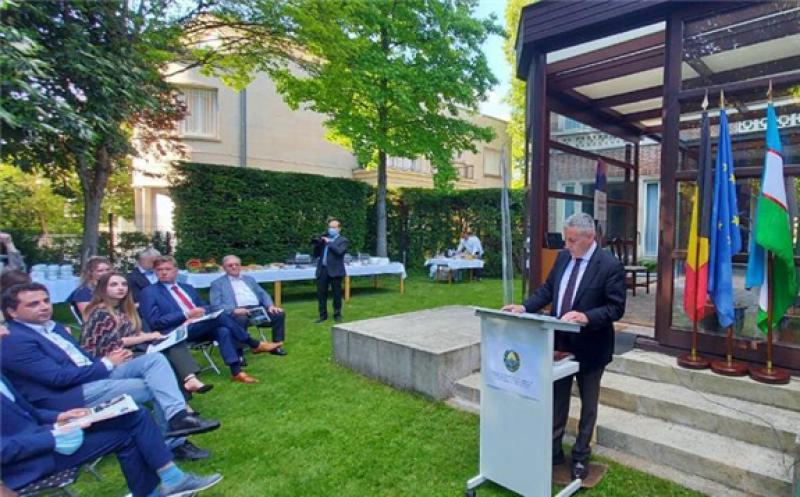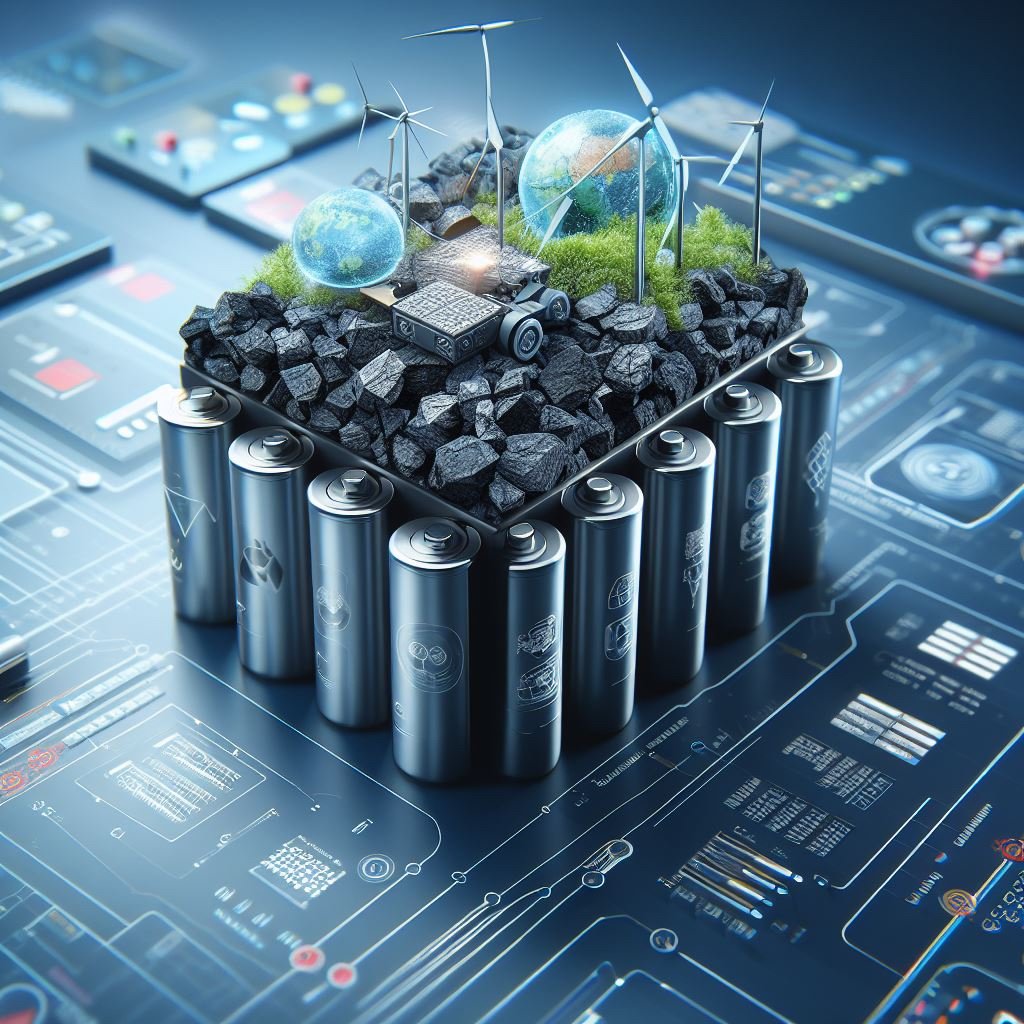Uzbekistan’s energy sector has taken major steps towards renewable energy sources and reducing CO2 emissions, boosting cooperation with its international partners.
 Uzbekistan’s Ambassador to the European Union Dilyor Khakimov addresses a reception event “Uzbekistan and its international partners: Thirty years of independent statehood, energy cooperation and openness towards reform and investment,” Brussels, Belgium, June 10, 2021. EMBASSY OF
Uzbekistan’s Ambassador to the European Union Dilyor Khakimov addresses a reception event “Uzbekistan and its international partners: Thirty years of independent statehood, energy cooperation and openness towards reform and investment,” Brussels, Belgium, June 10, 2021. EMBASSY OF
In a recent garden reception at the Embassy of Uzbekistan in Brussels, Ambassador to the European Union Dilyor Khakimov and Brussels Energy Club founder Marat Terterov were joined via zoom by speakers Brussels Energy Club Director Nadezda Kokotovic, European Geopolitical Forum Head of Research George Niculescu and New Europe Energy and Russian Affairs Kostis Geropoulos to discuss Uzbekistan’s energy cooperation with international partners and openness towards reform and investment in a year which marks a landmark event in Uzbekistan’s modern history – 30 years of independence for Central Asia’s most populous state.
The Uzbekistan ambassador noted that since his country became an independent country the large-scale reforms has been implemented to strengthen its energy industry. In particular, significant path was passed in the process of modernization and building new enterprises for energy infrastructure in oil and gas, hydropower and renewables, Khakimov said.
“As a result, today we can see increased volume of generating capacities, which ensures the country’s economic growth. But the breakthrough in energy has been made during the years under the President of Uzbekistan Mr. Shavkat Mirziyoyev,” Khakimov said.
“First, the President established the Ministry of Energy, which now coordinates the implementation of the overall energy policy of the Republic of Uzbekistan, including bringing investment and technologies,” he said, reminding that major European energy companies like Shell are participating in building the plant for natural gas processing in Surkhandarya region.
The other European company Stone City Energy will construct a Thermal Power Plant in Surkhandarya region, which will produce 1,560 MW of electricity.
“Along with the progress that we can see today, Uzbekistan still faces a challenge in unrealized potential, especially in renewable energy, which is expected to become the prime sector of Uzbek energy in coming years,” the Uzbek Ambassador to the EU said.
“Because of that the President of Uzbekistan Mr. Shavkat Mirziyoyev stressed the importance of moving toward greater use of renewable energy in the Strategy for actions on the development of Uzbekistan in 2017 – 2021,” he said.
Moreover, most recently the Head of Uzbekistan in his speech on May 30 at the Second International Summit “Partnership for Green Growth and Global Goals – 2030” (P4G) in Seoul has announced an ambitious goal – to increase the share of renewable energy sources in the country’s economy by more than 3 times in the next 10 years.
Uzbekistan has set a goal to increase the amount of Renewable Energy Sources in total electricity production to 25% by 2030, today – 10%. To achieve these results, the state is taking active measures to implement major projects in the renewable energy sector, Khakimov explained.
As many countries, Uzbekistan as a party to the Paris Agreement (2015) seeks the common goal of greenhouse gas emission mitigating. The Government expects that developing of renewable energy resources will reduce emissions by 10% by 2030 compared with 2010.
With the help from the EU through the EBRD and Corporate Solutions, Uzbekistan has developed a national Low-Carbon Energy Strategy to improve energy efficiency, increase the share of renewable energy in the country’s energy balance in line with UNFCCC guidelines and meet the country’s energy needs.
Transition to low-carbon energy will make it possible to provide Uzbekistan with electricity at a high growth rate and improve its citizens’ quality of life. This is also an important part of Uzbekistan’s growing role in the regional and international energy markets.
Looking at the experiences of Germany, Japan and Spain, Uzbekistan is making a low-carbon transition, and many European investors have expressed interest in investing in the country’s alternative energy sources – including hydro, solar and wind – to produce electricity with low carbon emissions.
Recently, with the support of the World Bank Group, Abu Dhabi Future Energy Company (Masdar) and the government of Uzbekistan, a project was launched to build the country’s first solar photovoltaic power plant with a capacity of 100 megawatts.
Uzbekistan’s Energy Minister, Alisher Sultanov, told New Europe in a recent interview his country plans to liberalize its energy sector, which is part of a series of reforms in Uzbekistan that began several years ago when the country embarked on a new course of development.
Uzbekistan is currently undergoing a major transformation and privatization program that involves the sale of 60 large industrial enterprises, and the sale of shares in more than 400 state-owned companies in the near future.
Uzbekistan can provide all of the necessary conditions for foreign investors when they decide whether to invest in the country.






